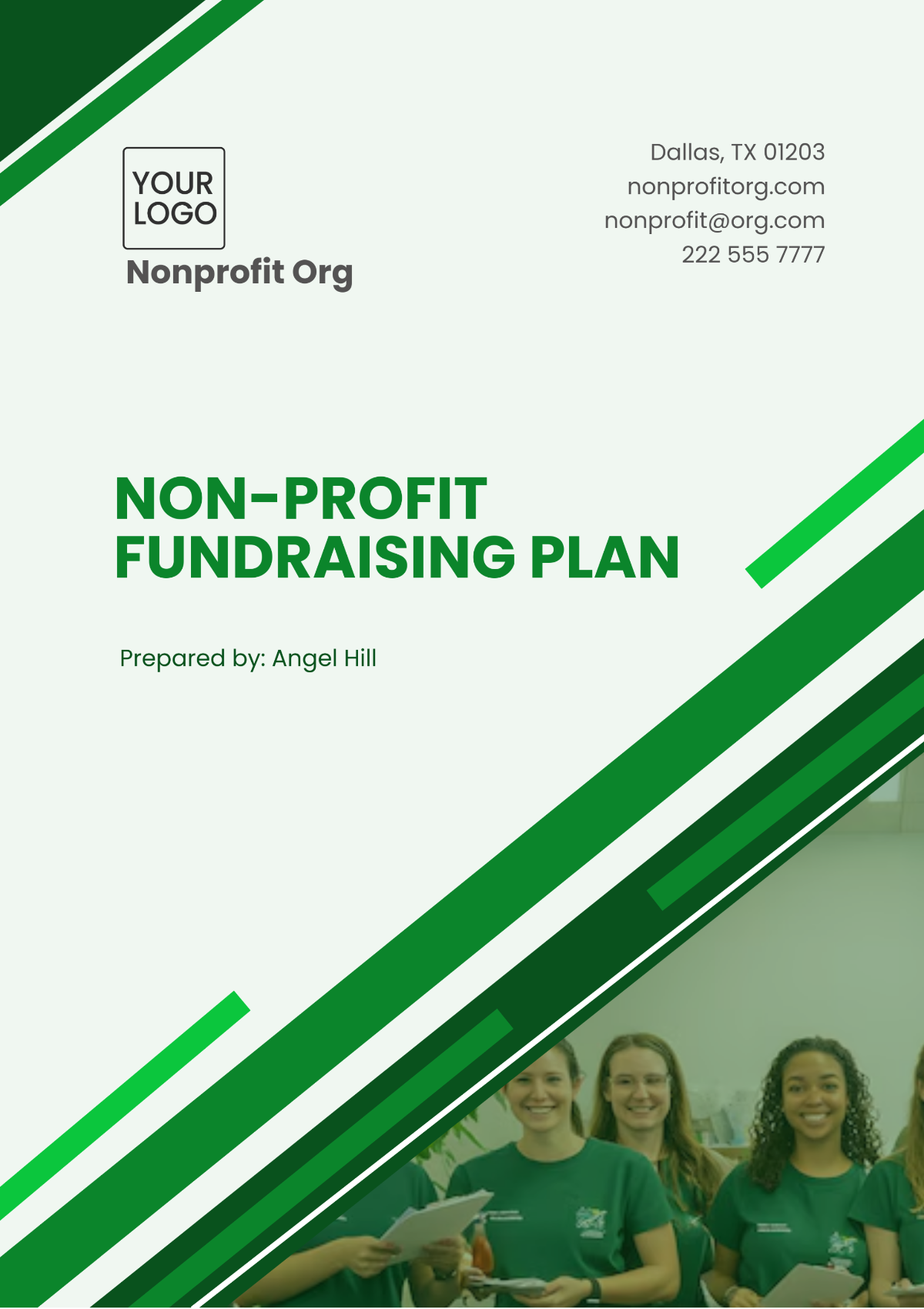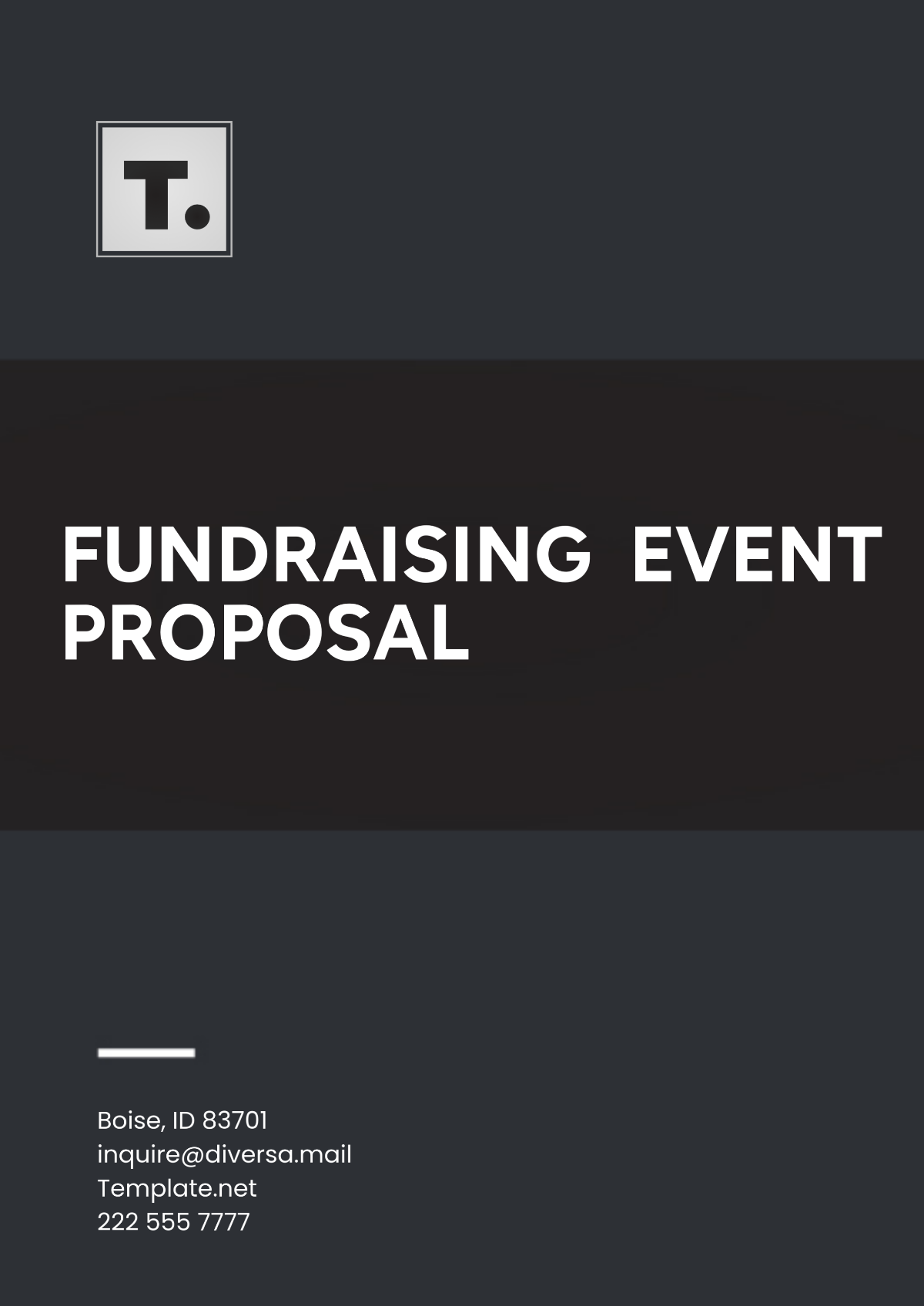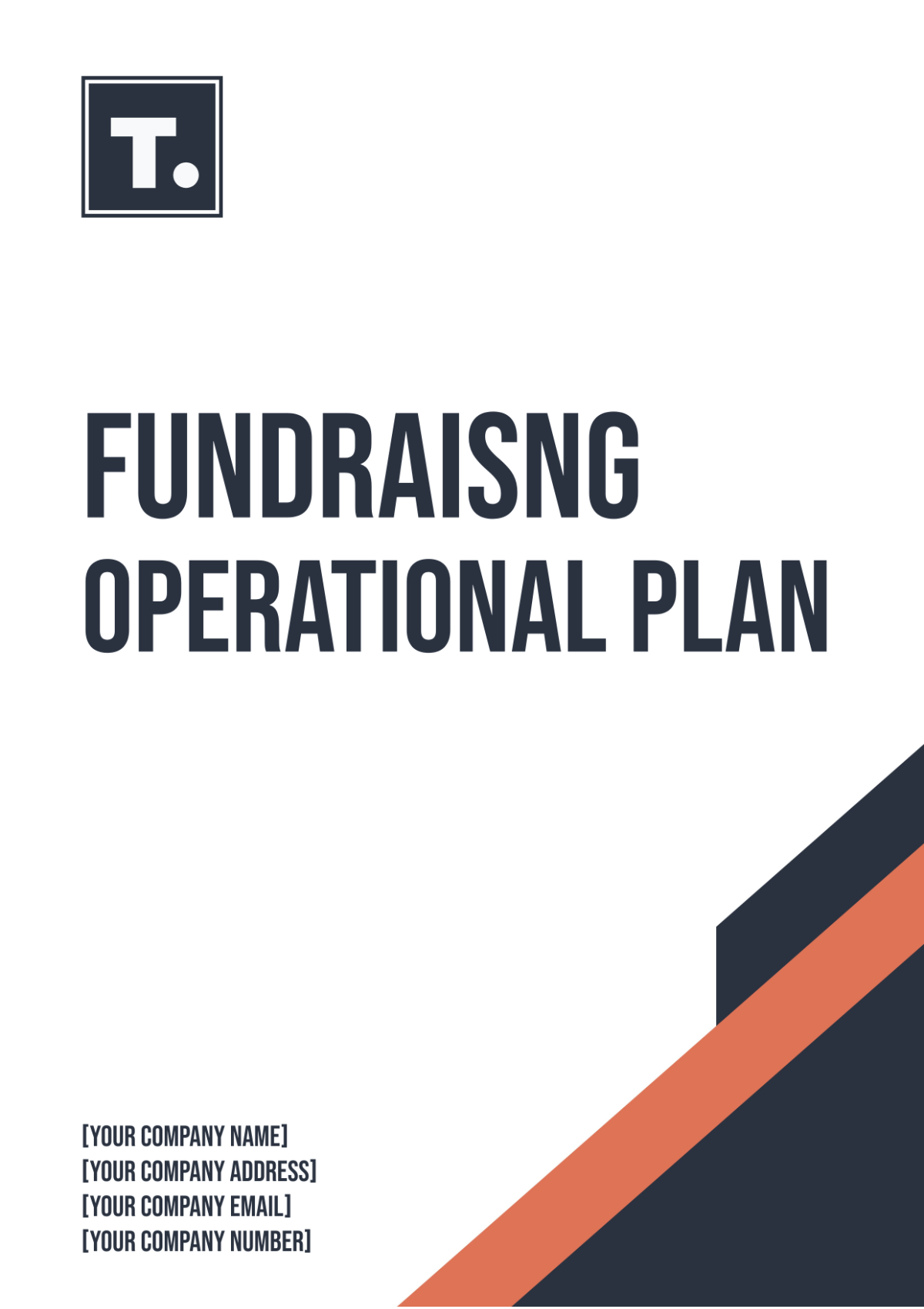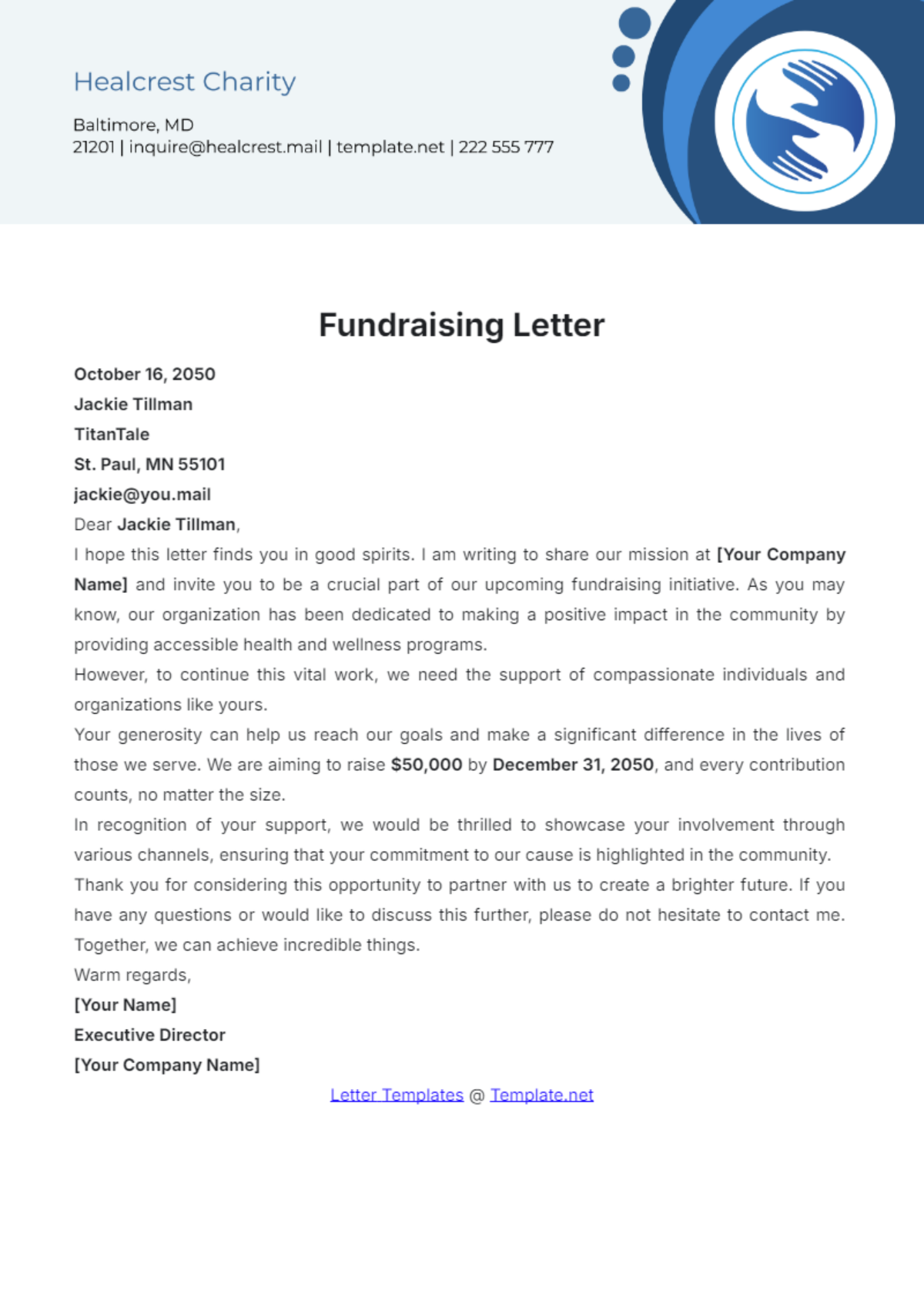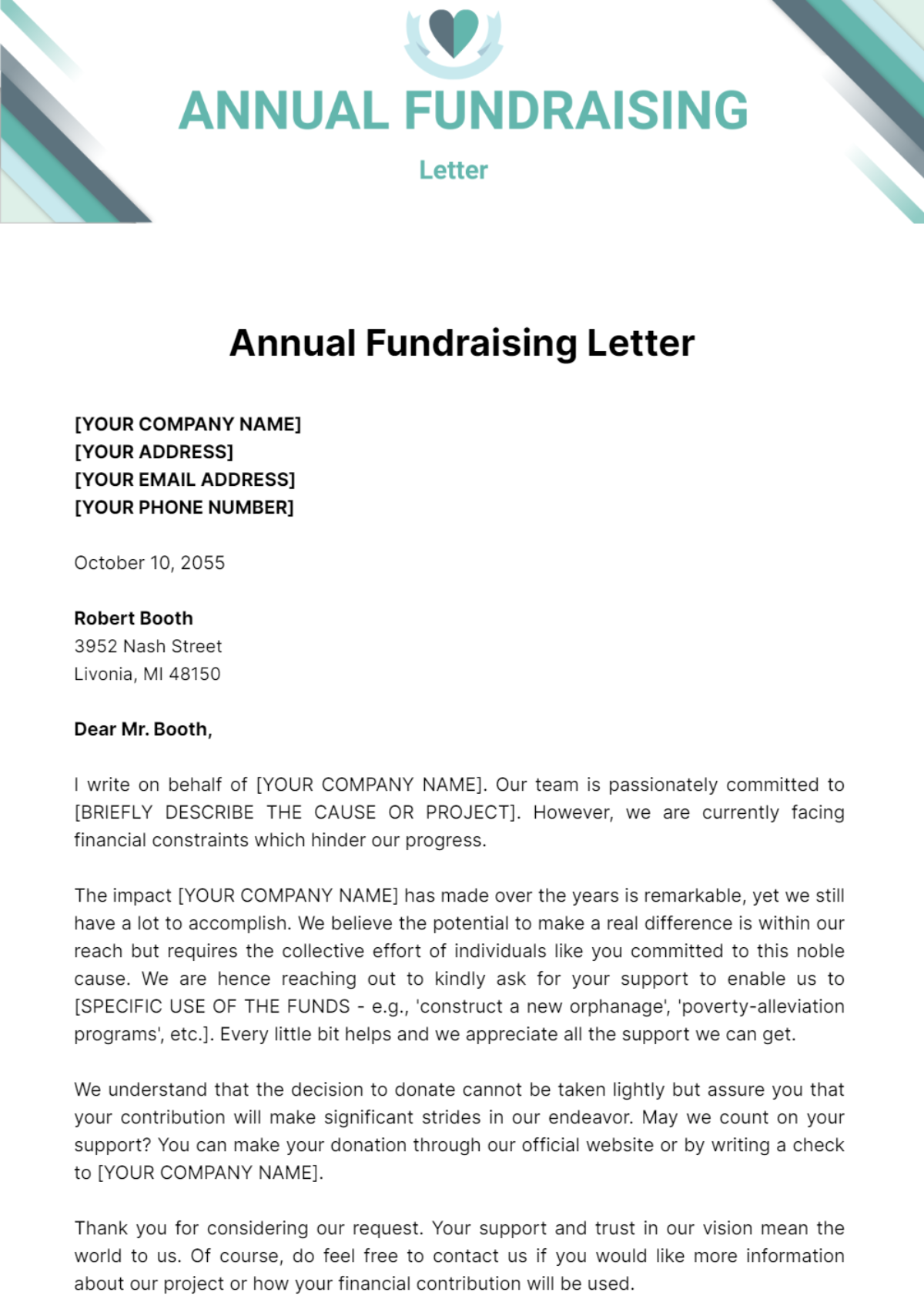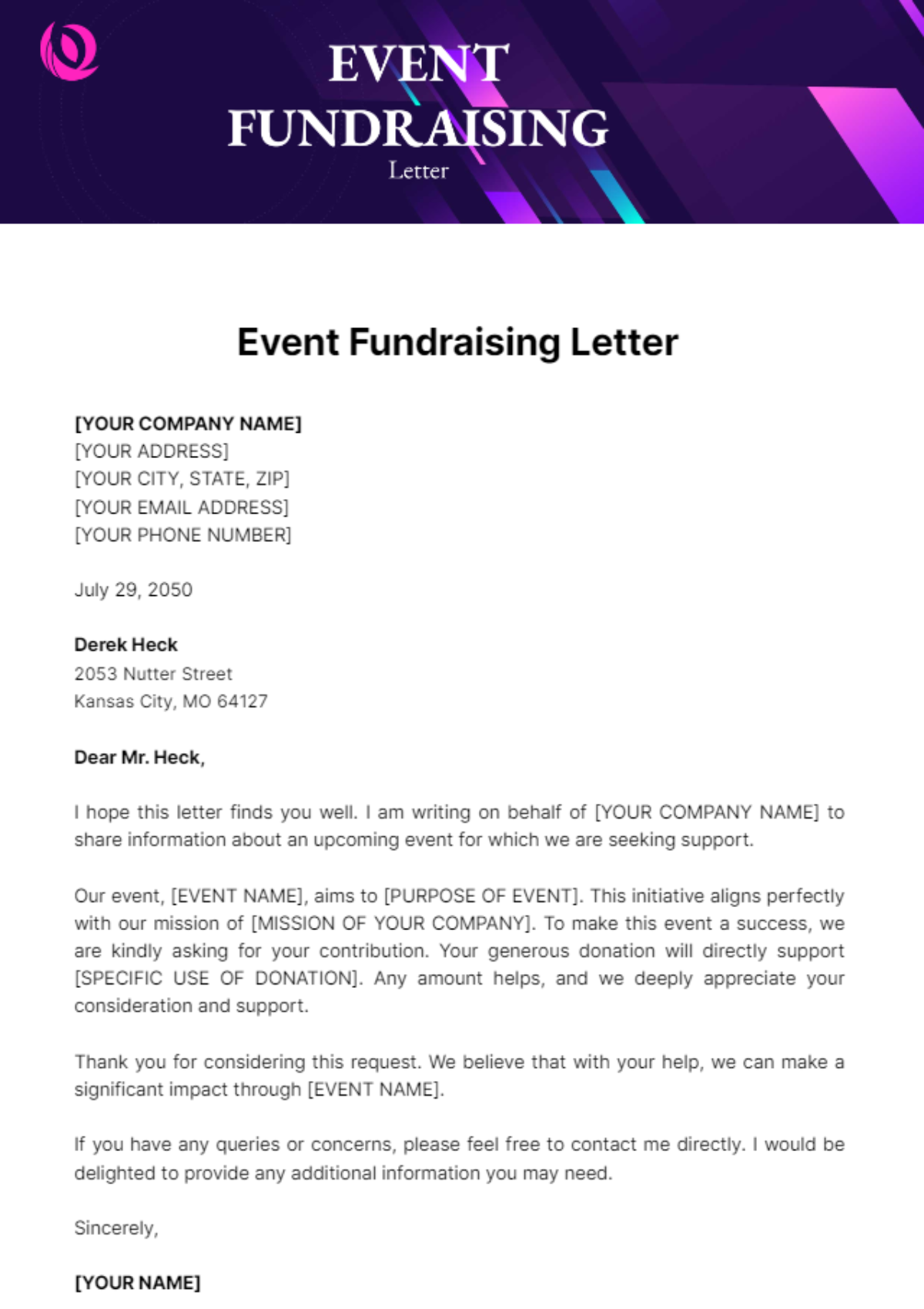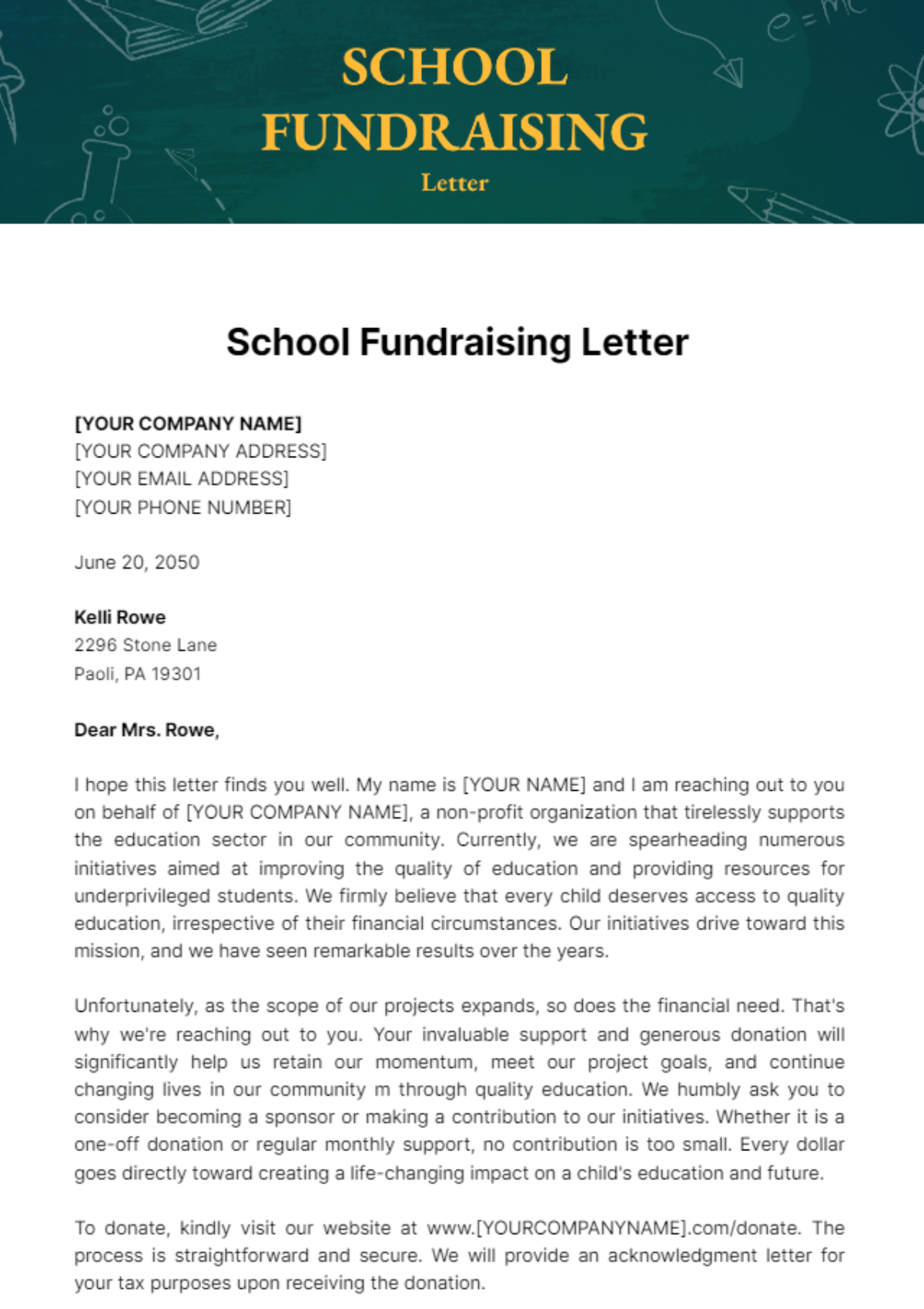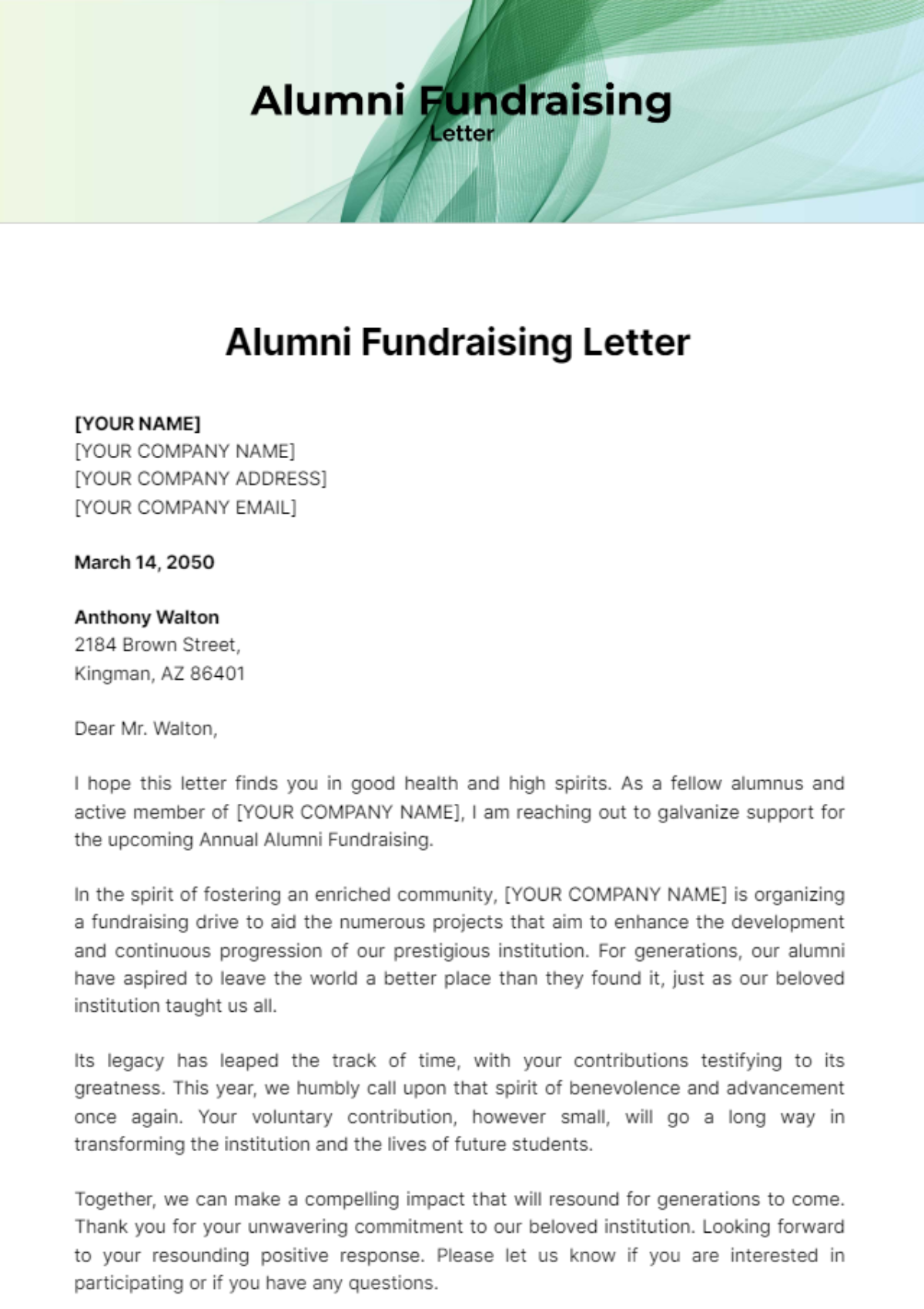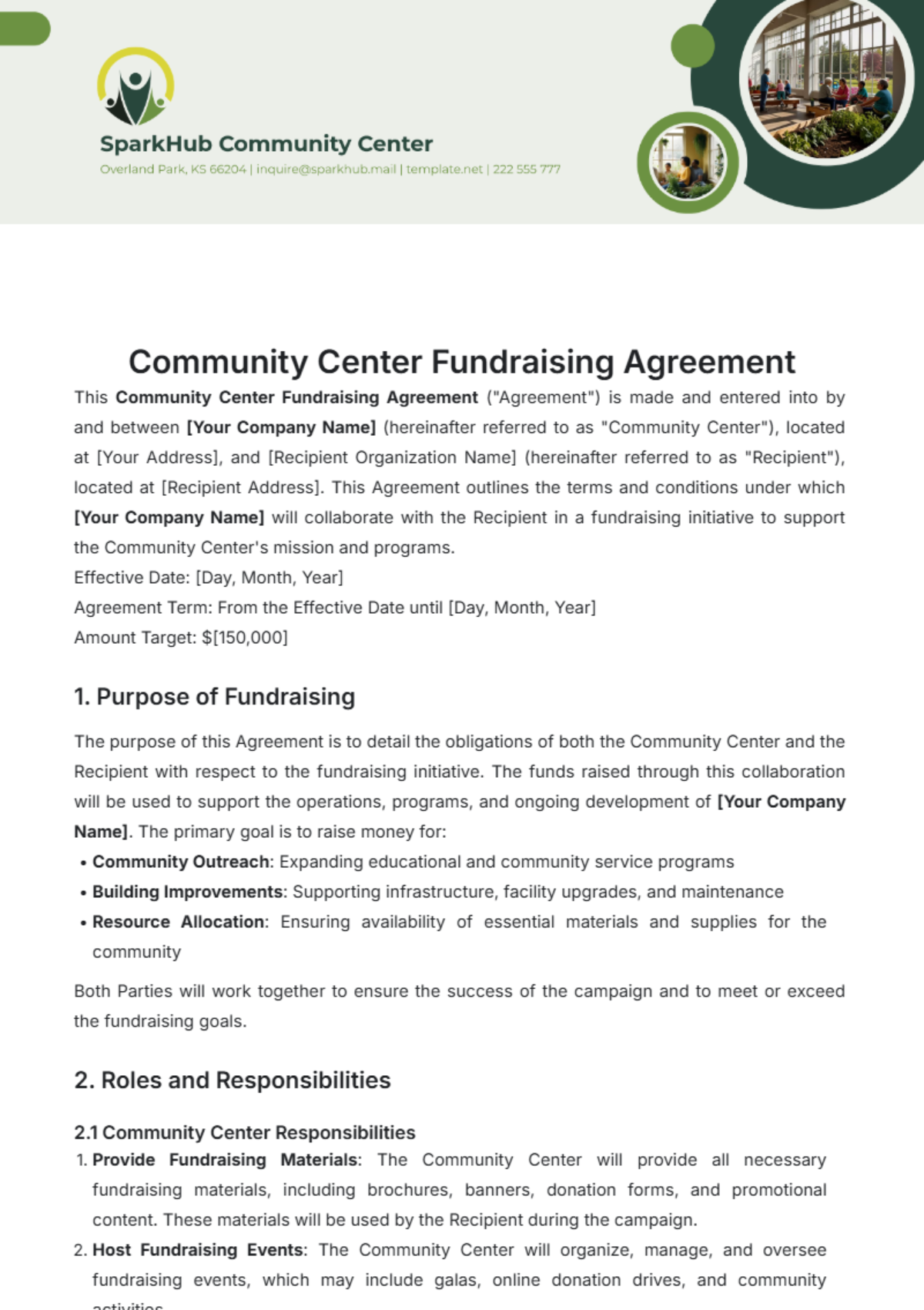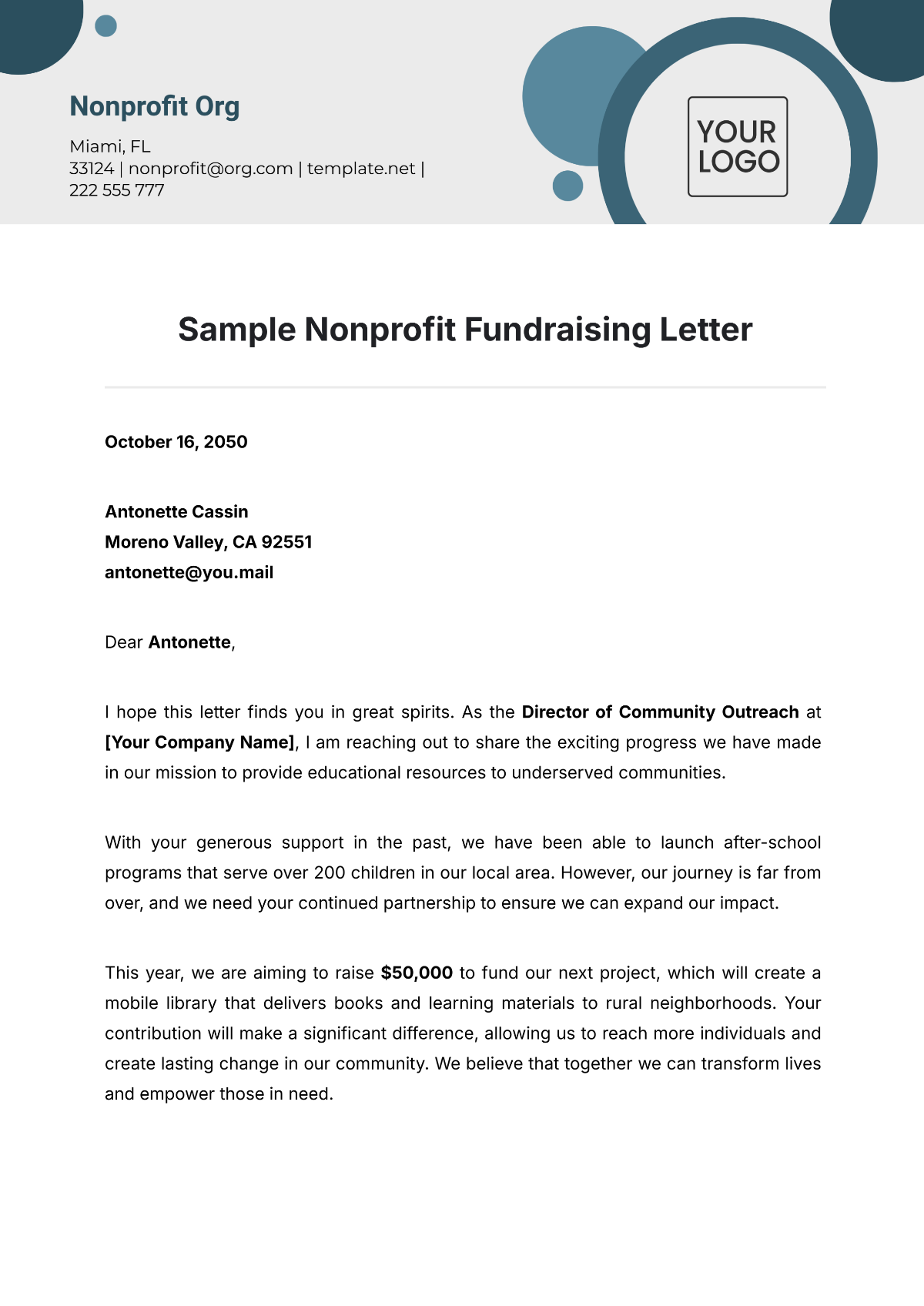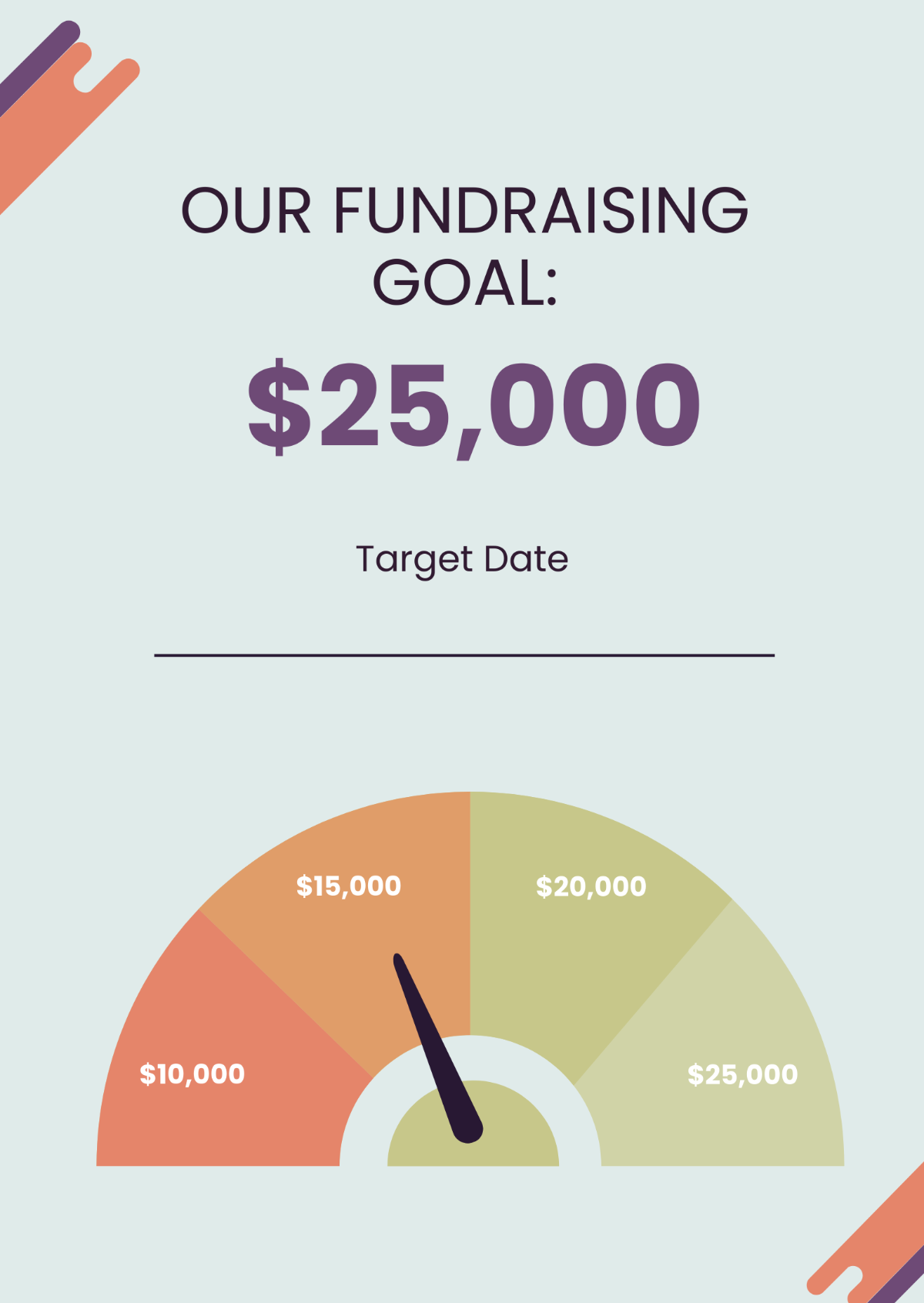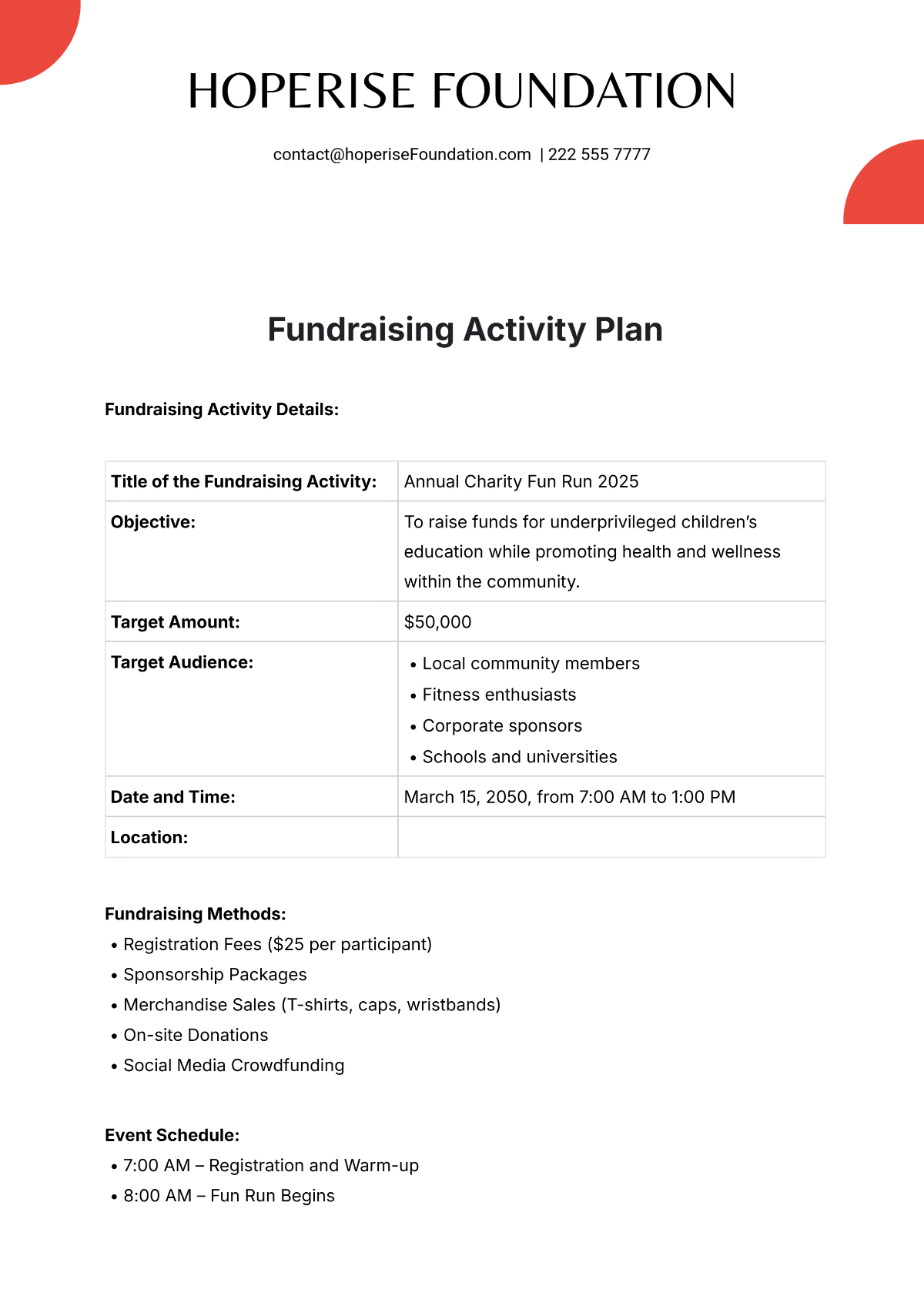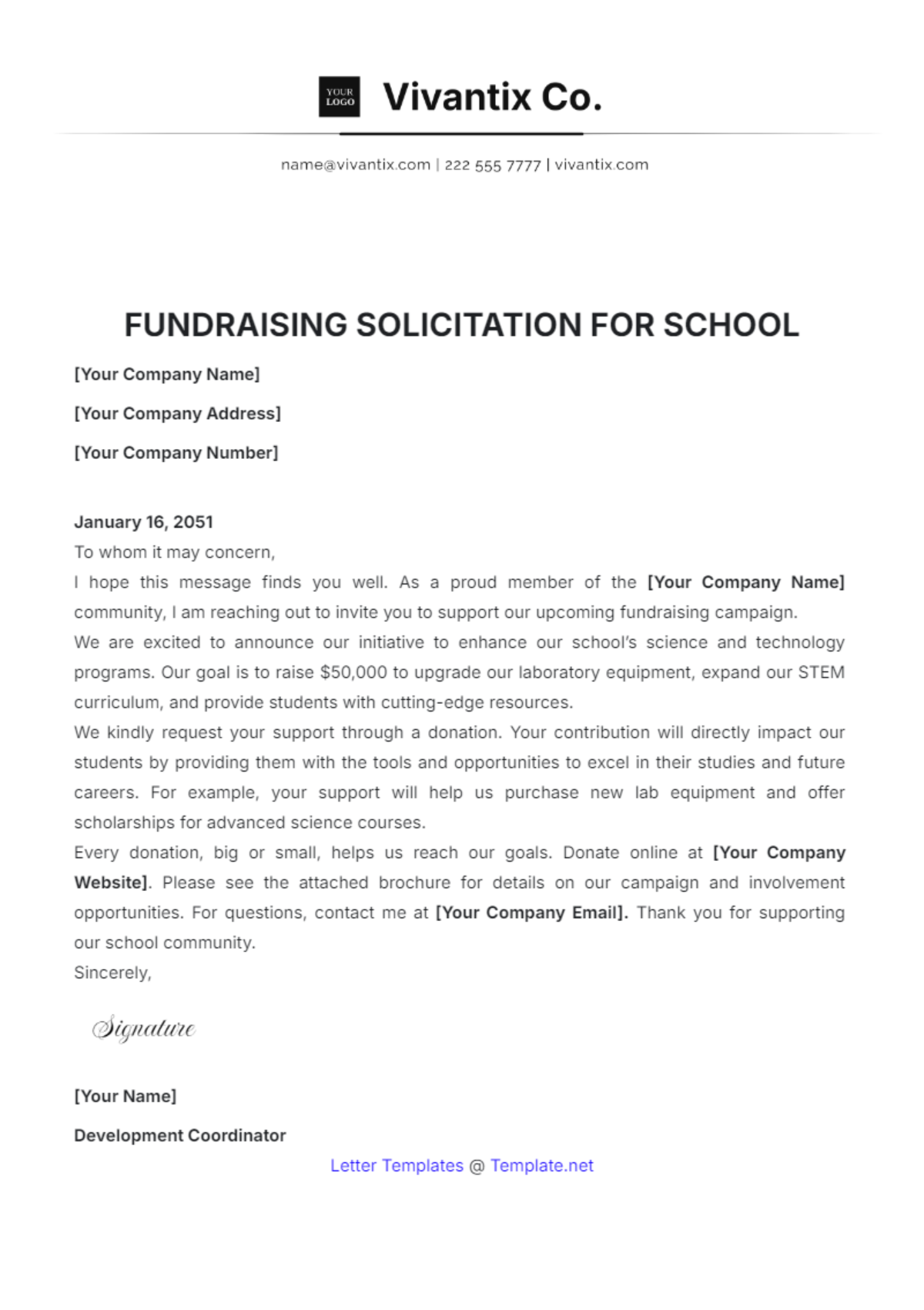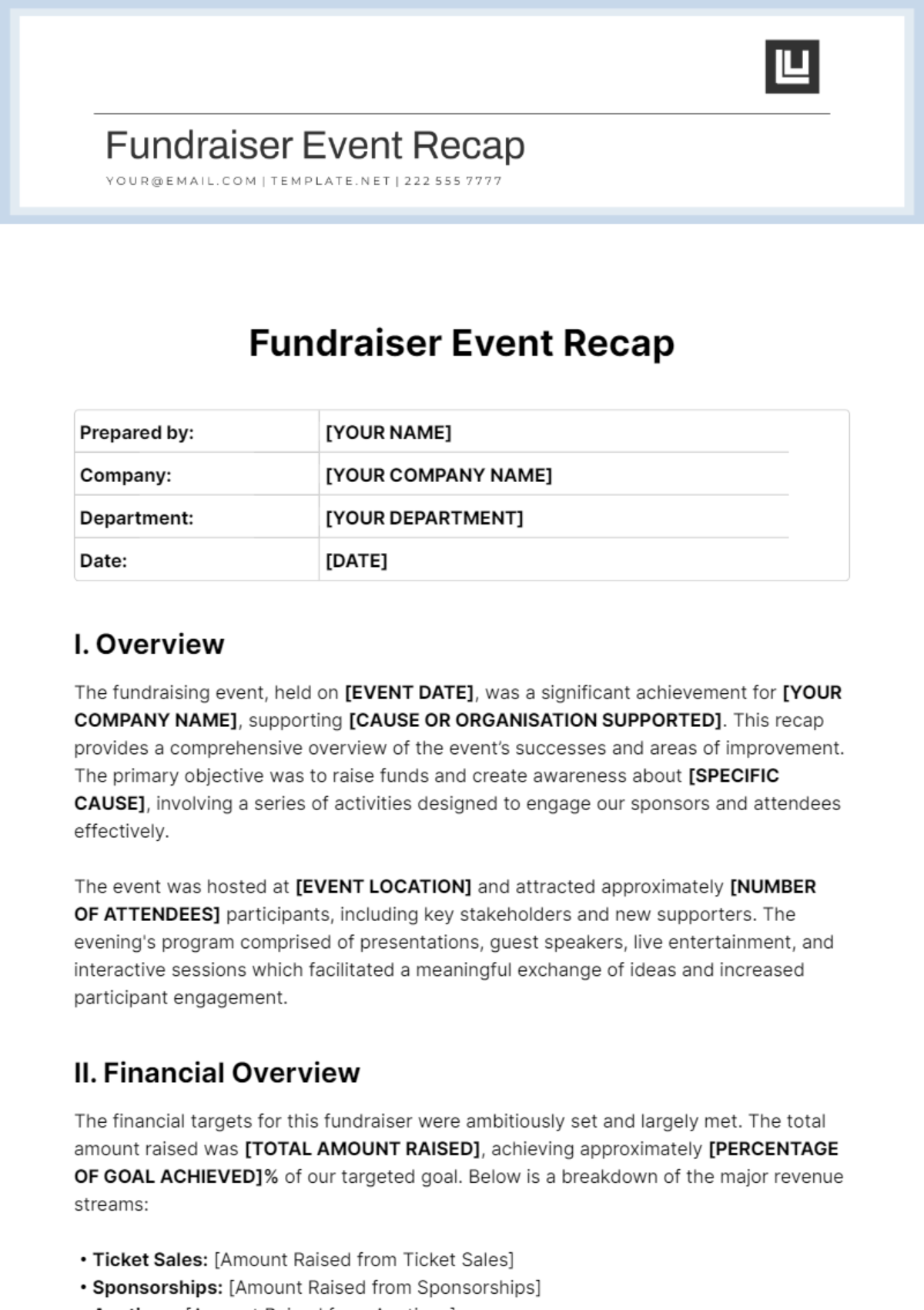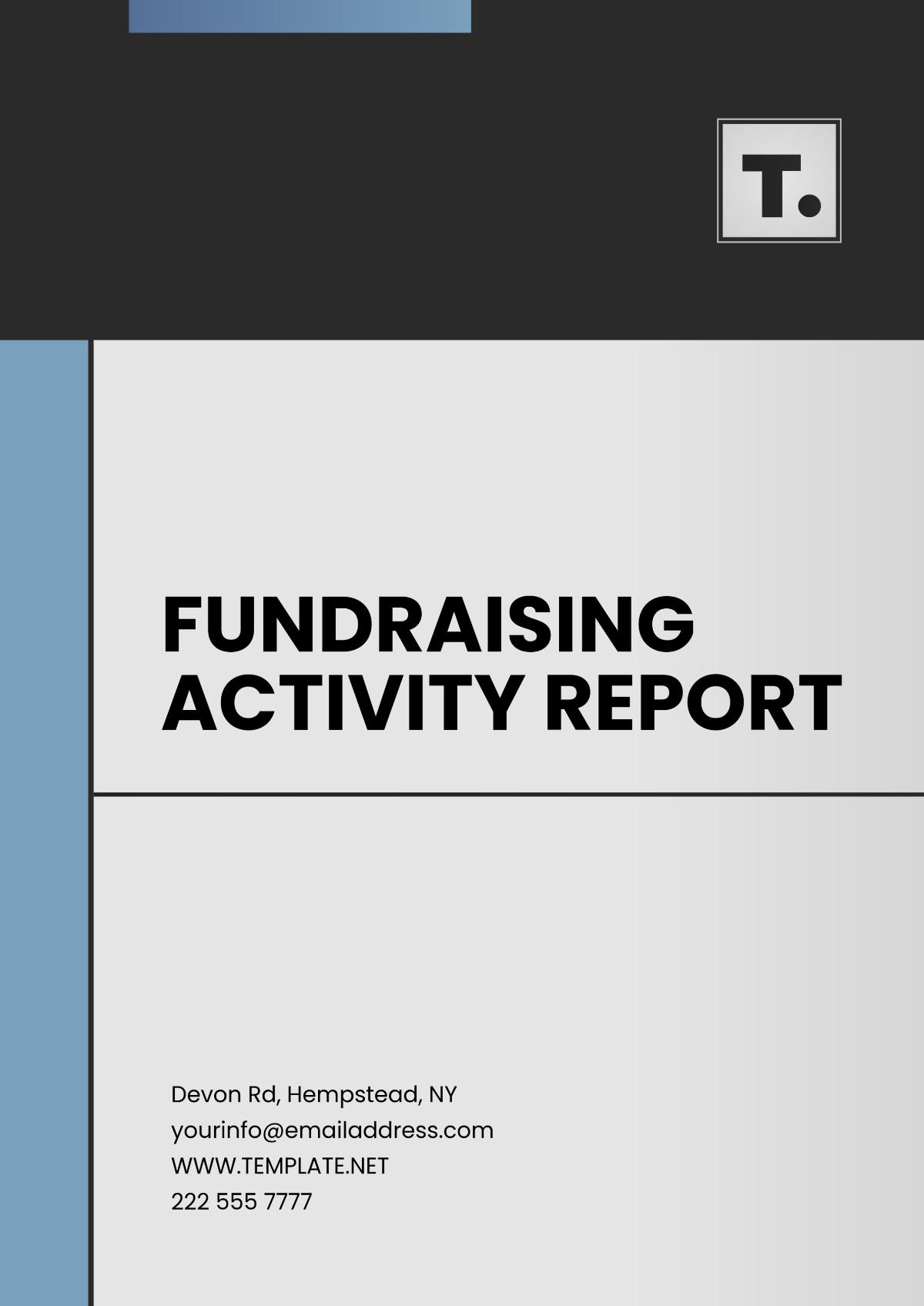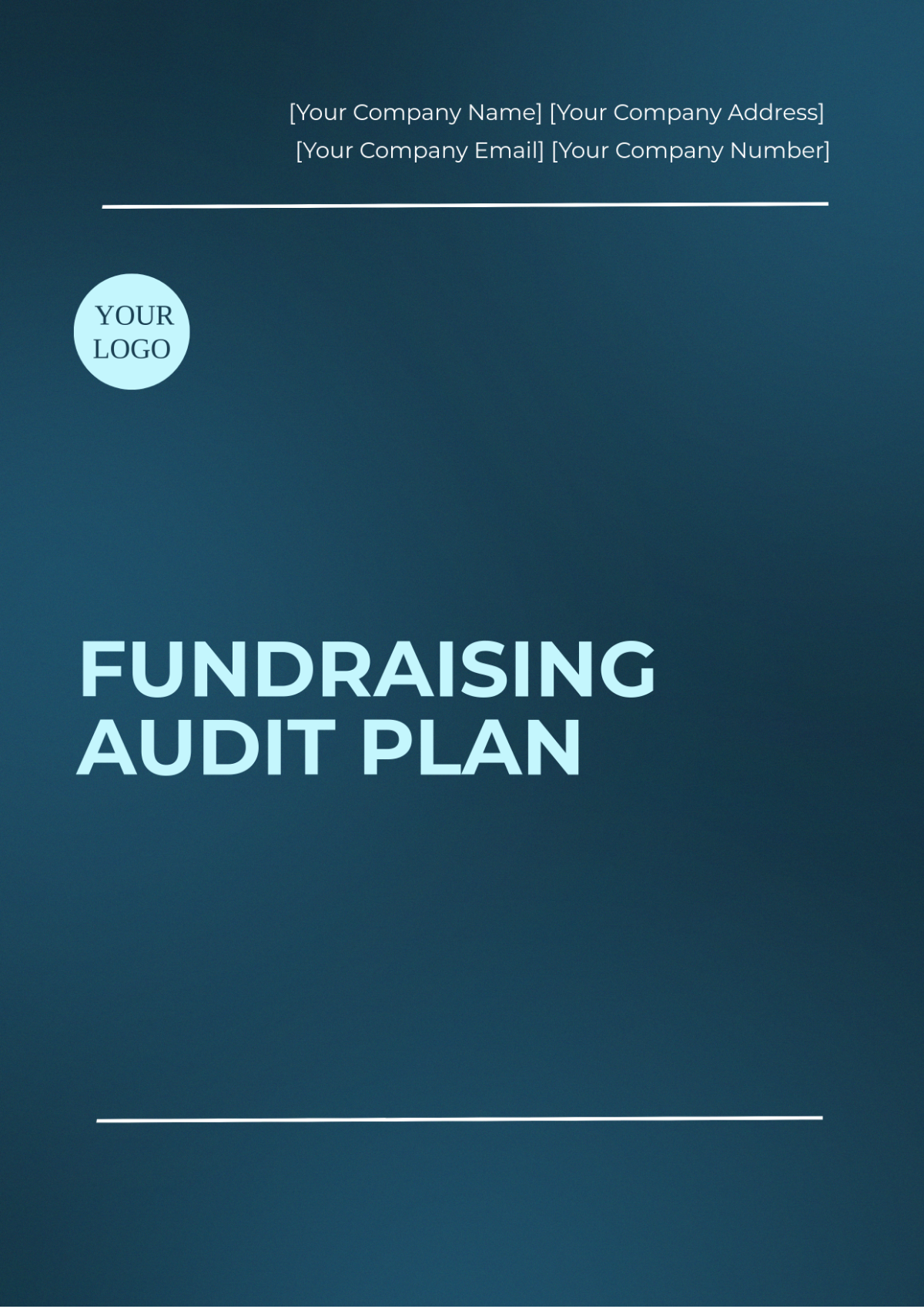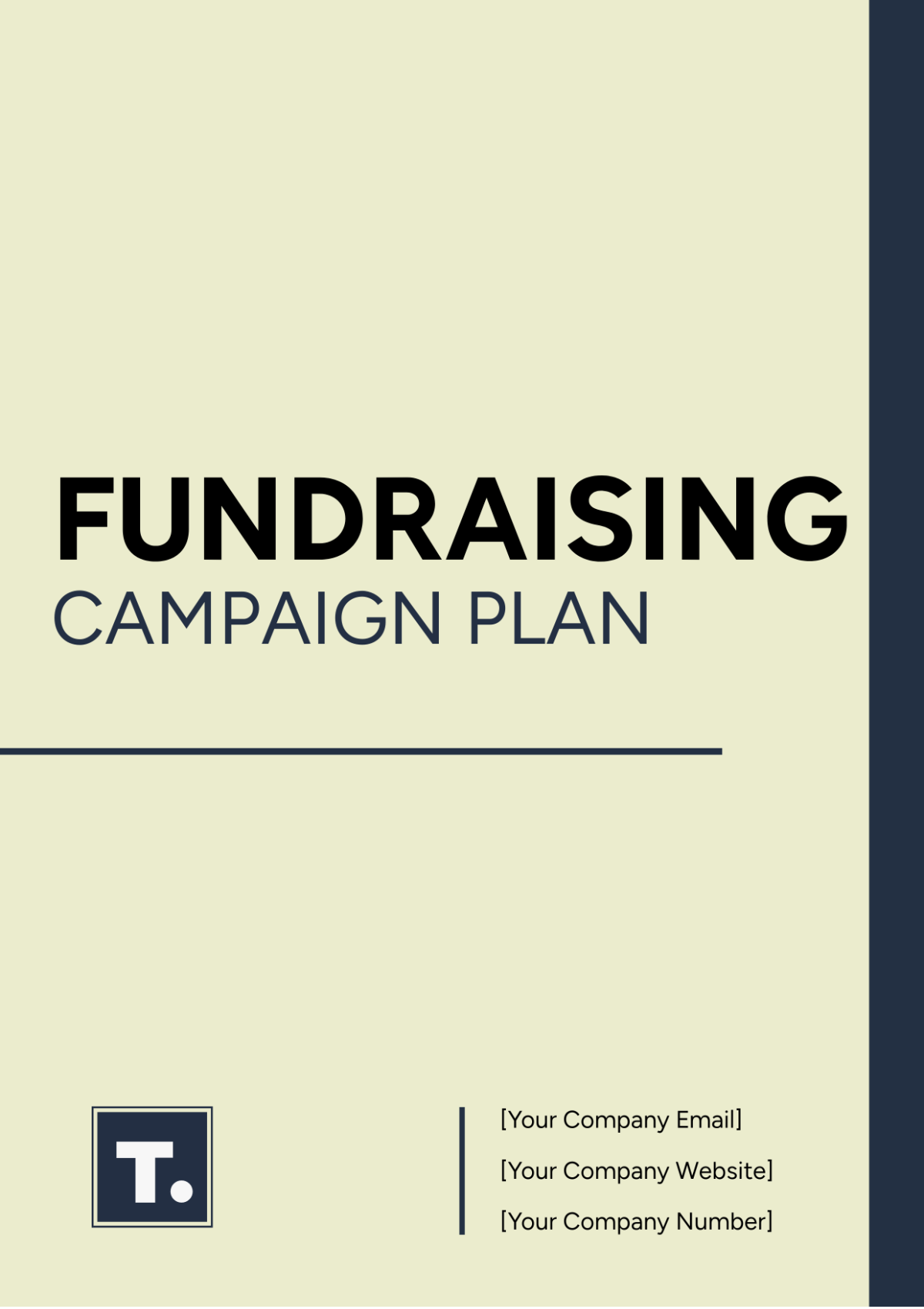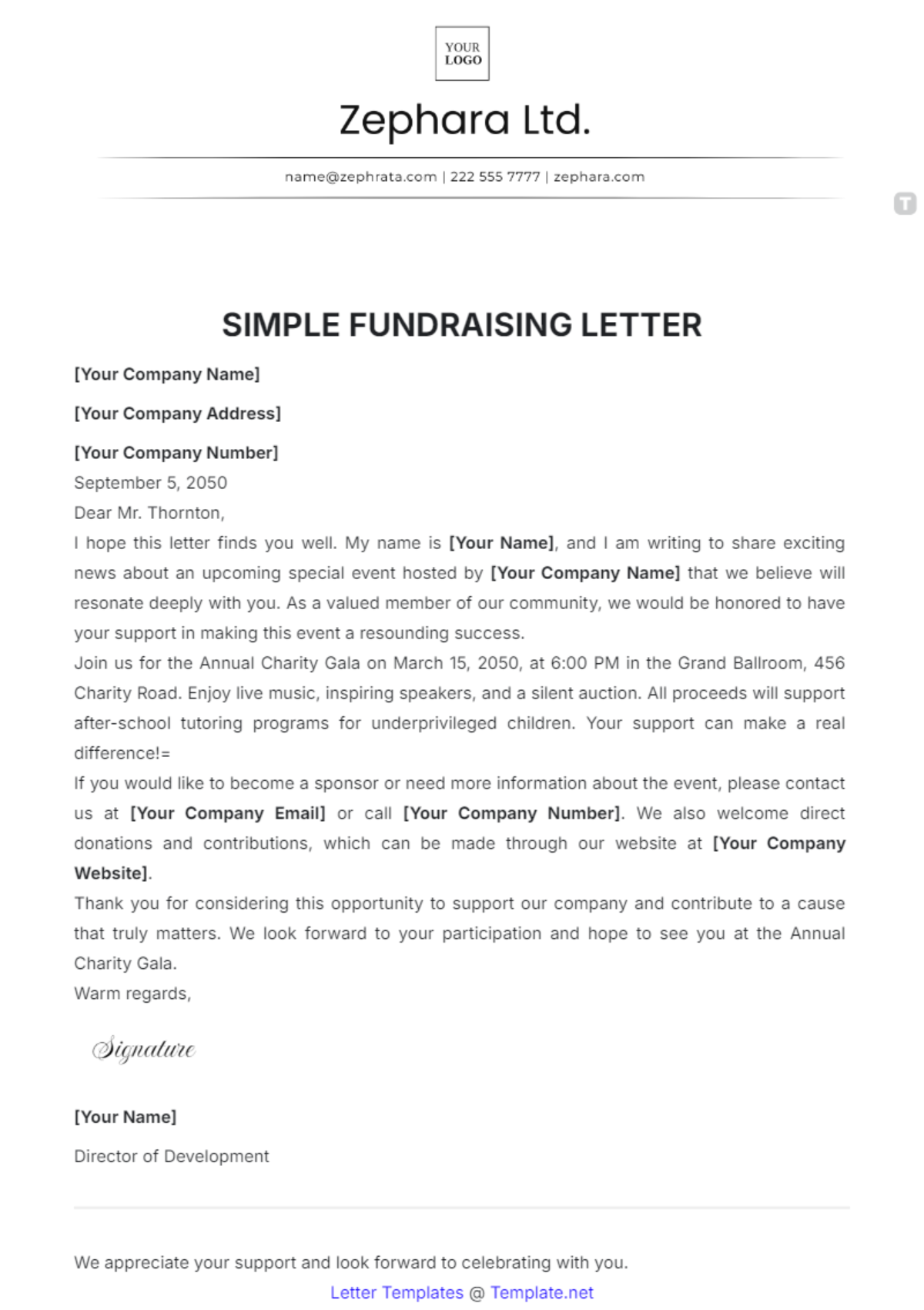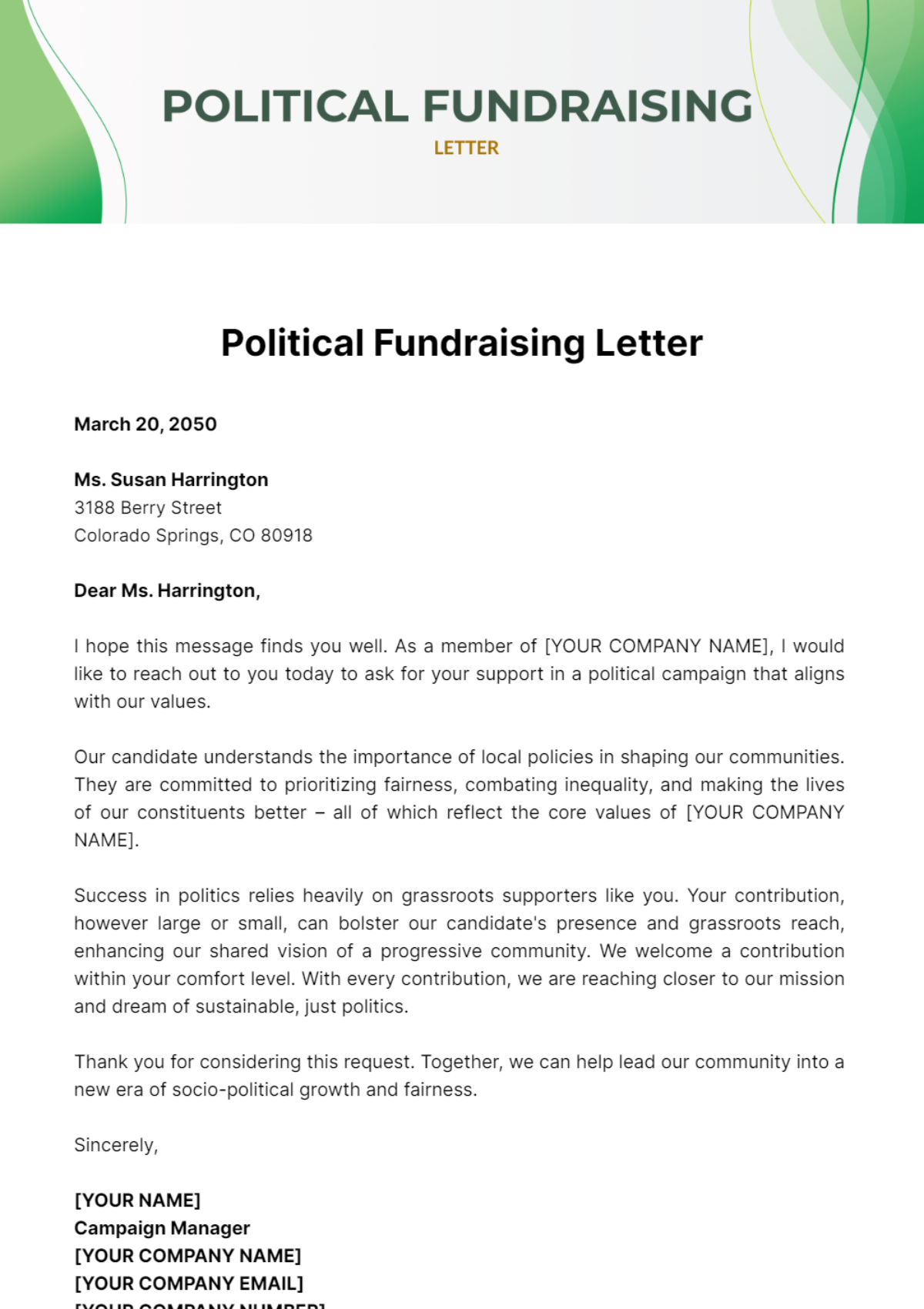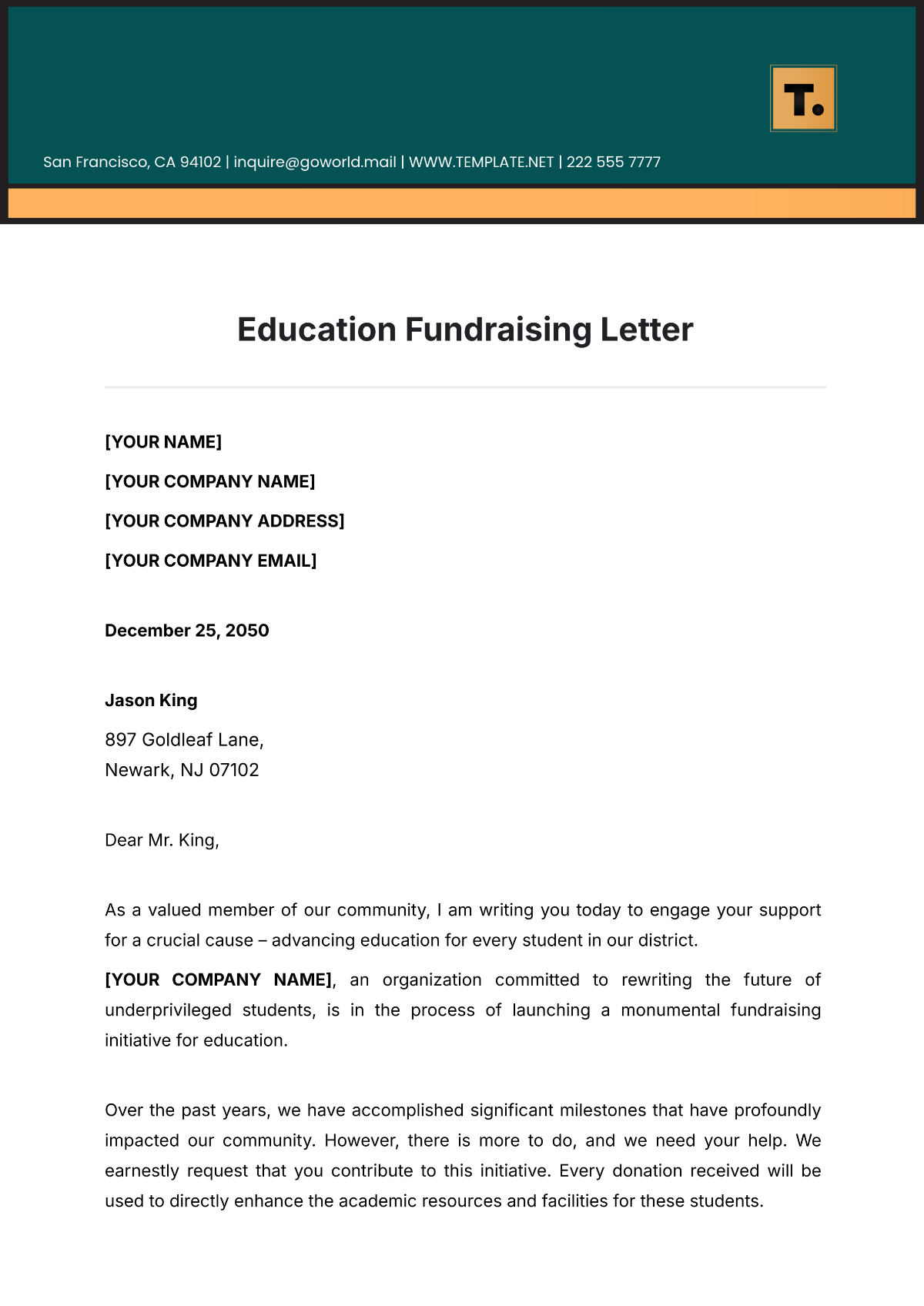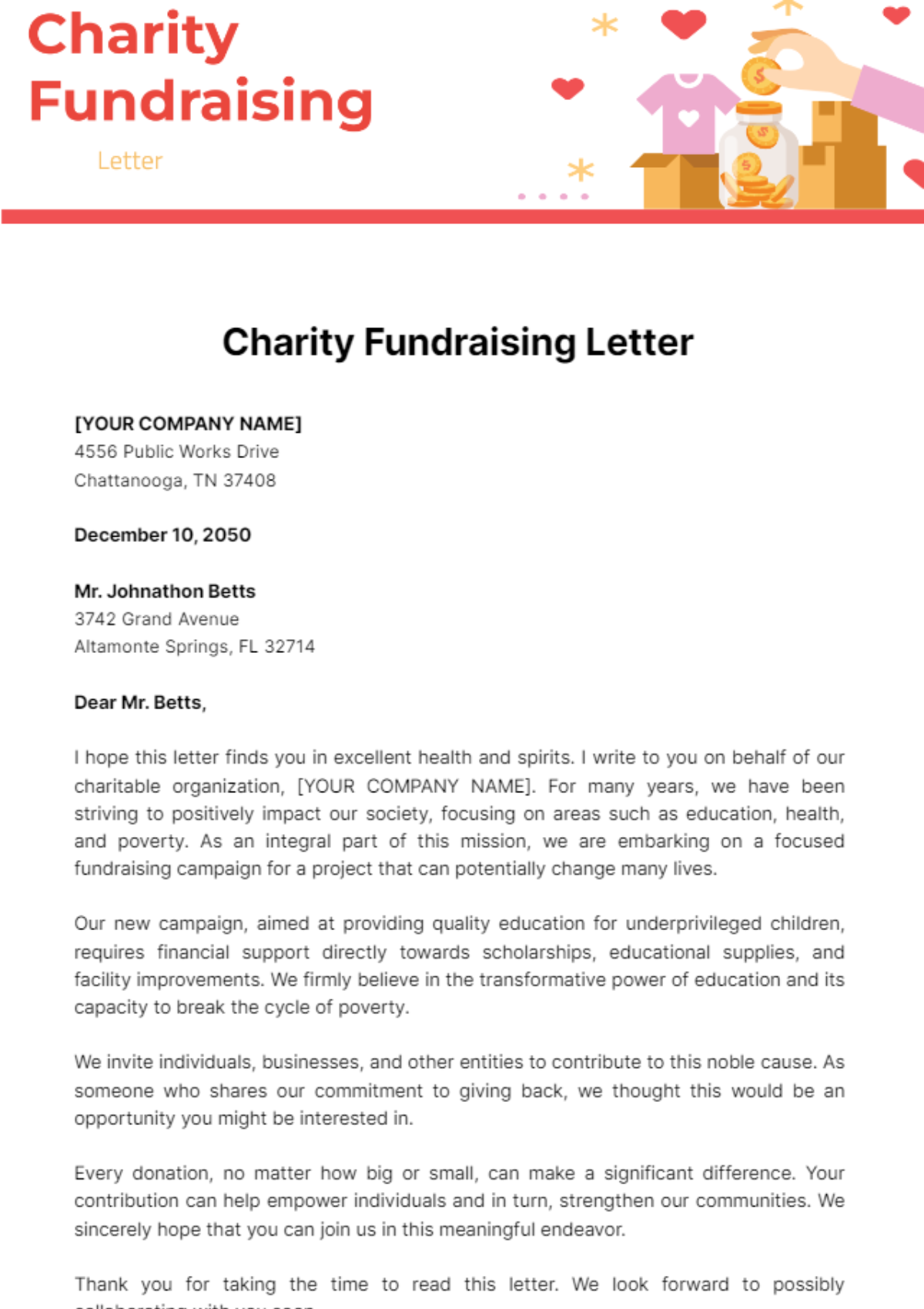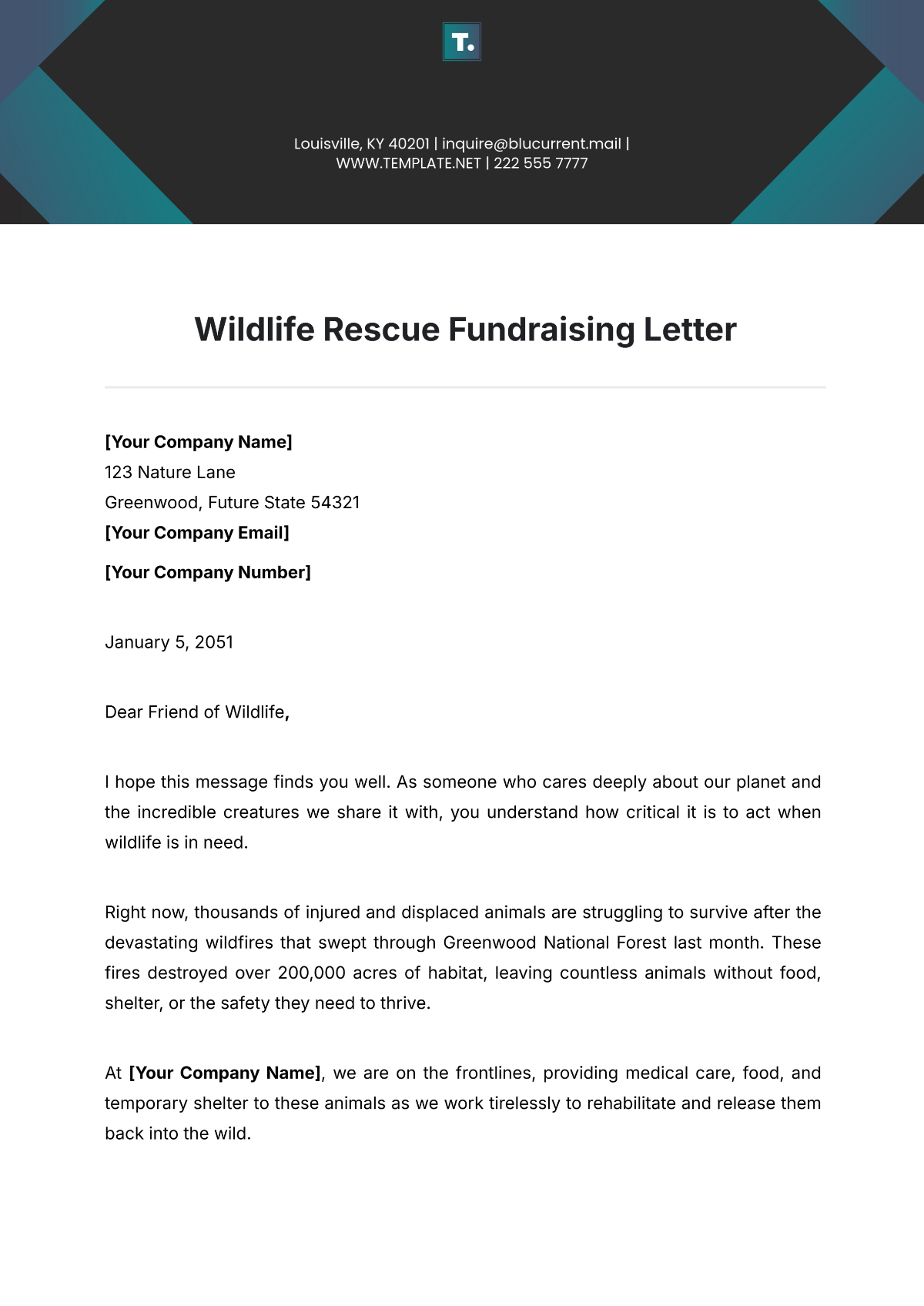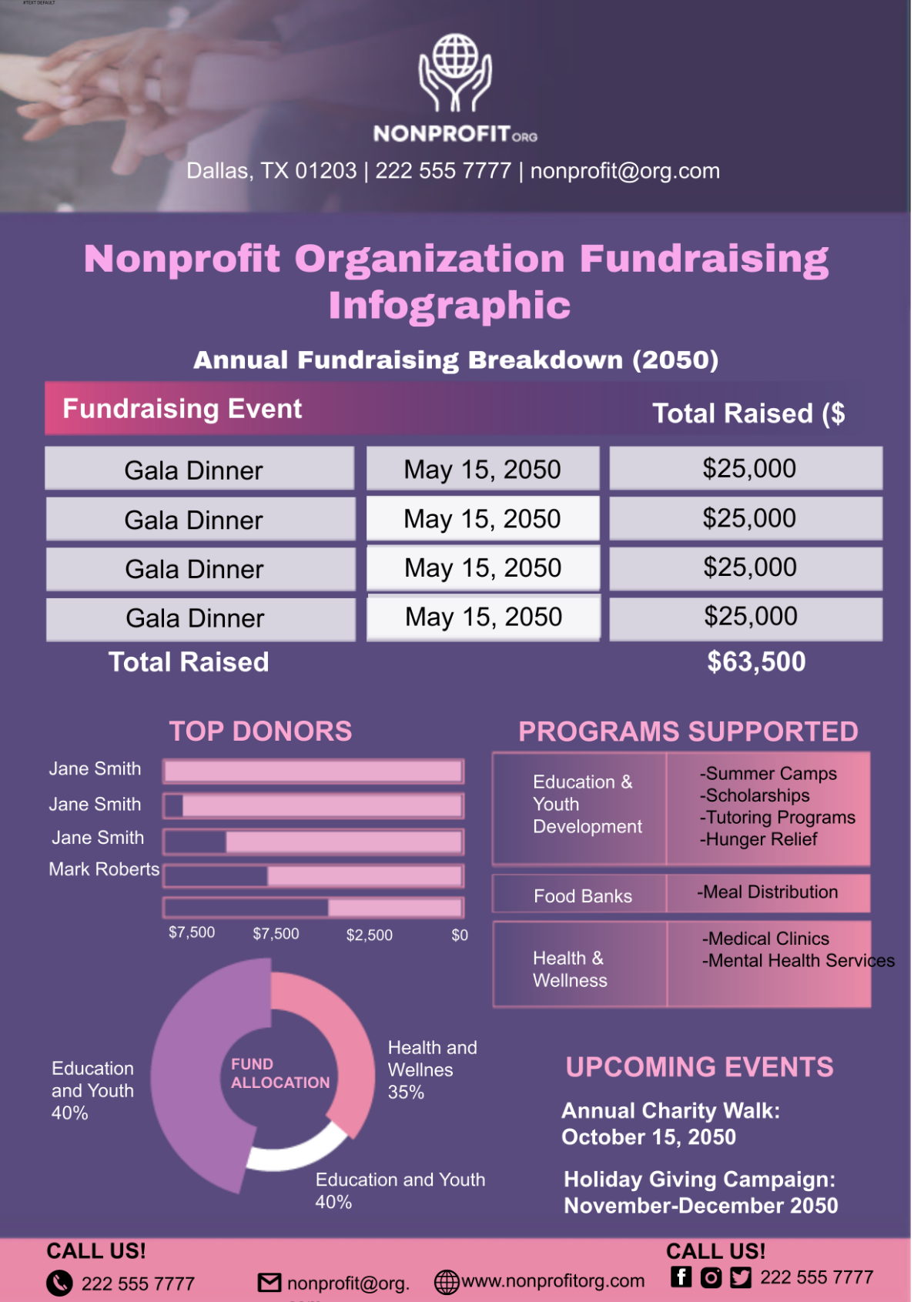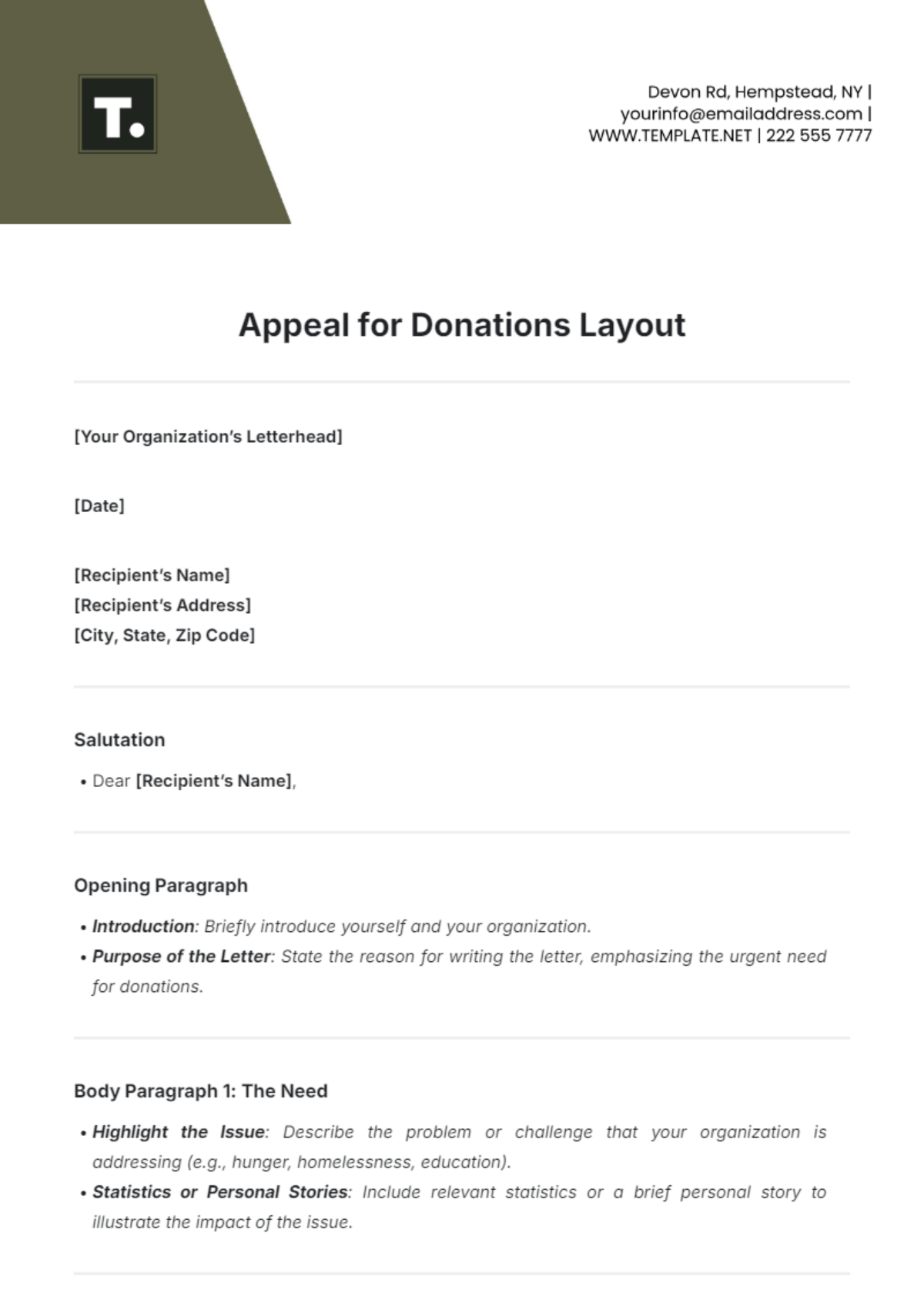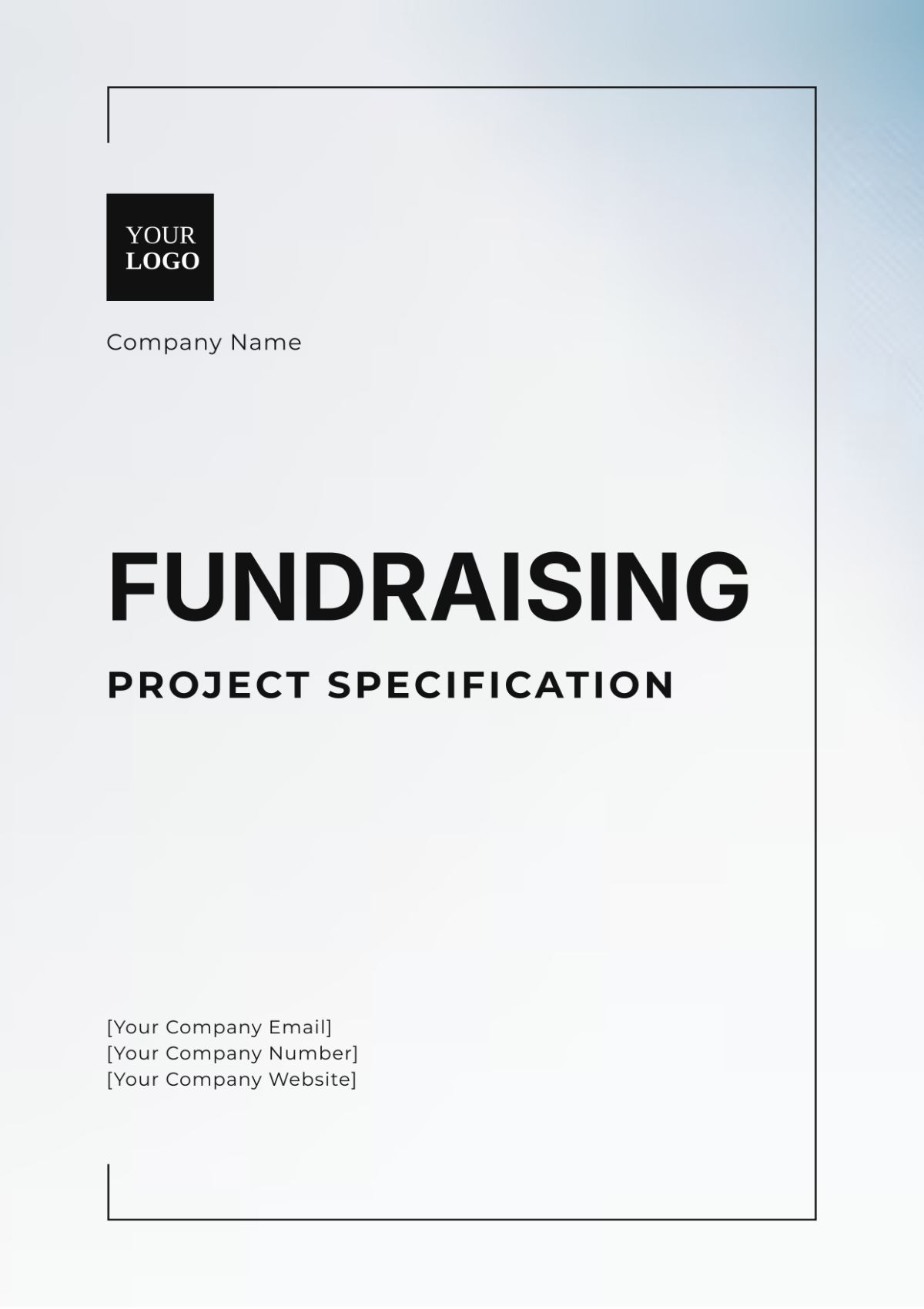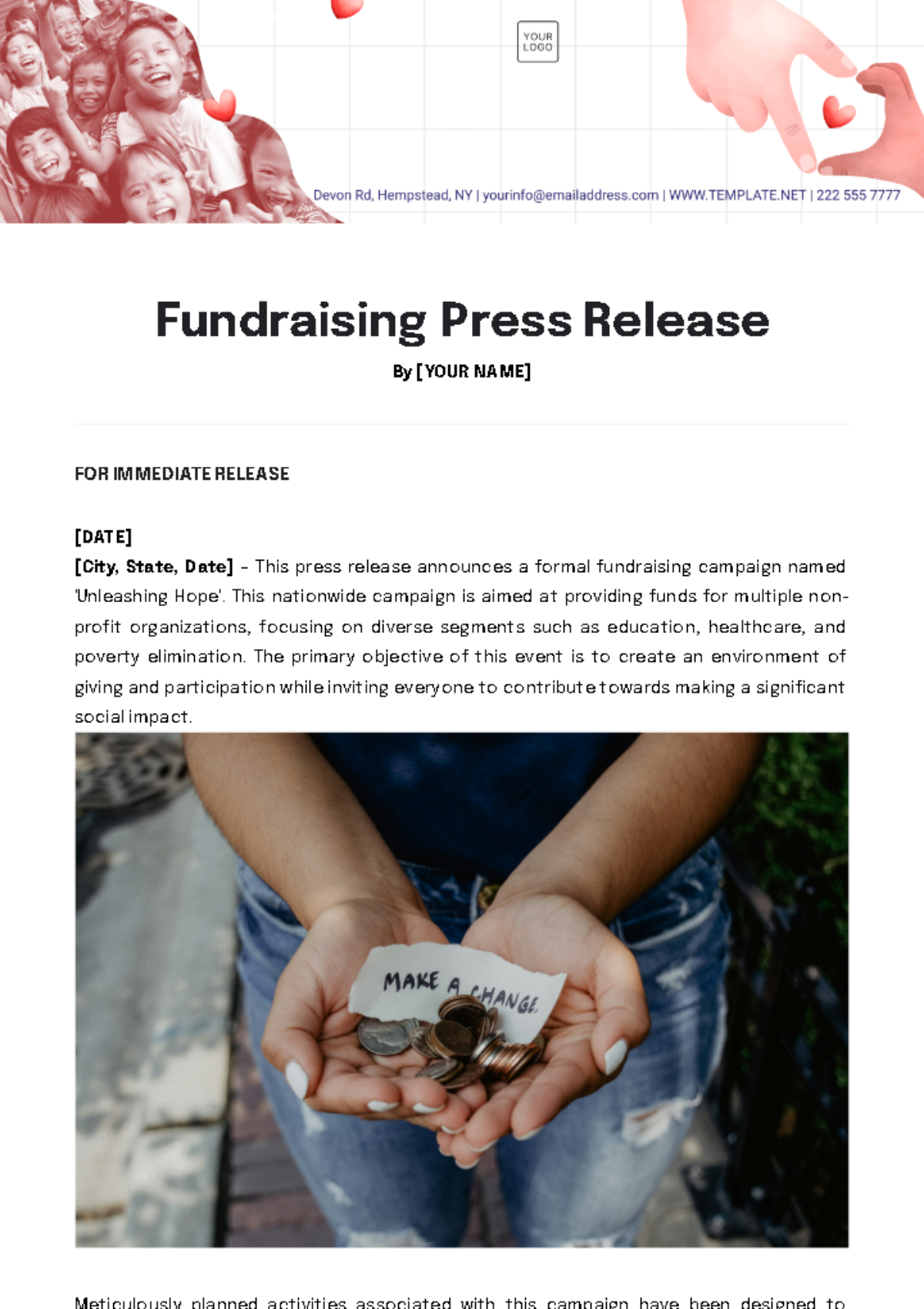Fundraising Project Specification
Prepared By: [Your Name]
I. Executive Summary
The main goal of [Your Company Name]'s fundraising initiative is to collect funds to support the education of underprivileged children, using diverse fundraising methods, engaging potential contributors, and reaching a $100,000 target within six months; a detailed plan outlines all stages, including tactical and strategic measures, to ensure the project's success.
II. Objectives
This fundraising project has several key objectives:
Raise $100,000 within six months.
Increase awareness about the cause among potential donors.
Build long-term relationships with donors for future fundraising endeavors.
III. Scope
The scope of this project encompasses several aspects:
Identifying potential donors and target audiences.
Planning and executing fundraising events and campaigns.
Utilizing digital platforms for online fundraising.
Developing marketing and communication strategies.
Monitoring and evaluating the progress of fundraising activities.
IV. Stakeholders
The stakeholders involved in this project include:
Project Manager: Oversee and manage the fundraising project.
Fundraising Team: A dedicated fundraising team.
Marketing Team: Manages project promotion and communication.
Donors: Individuals and organizations who will provide financial support.
Partners: Other potential fundraising partners.
V. Deliverables
The project will deliver several key outputs:
A comprehensive fundraising plan, including timelines and budget.
Marketing materials like brochures, websites, and social media content.
Regular progress reports detailing the status of the fundraising efforts.
A comprehensive and detailed report summarizing the outcomes of the fundraising activities.
VI. Fundraising Strategies
A. Event-Based Fundraising
This strategy involves organizing events to attract and engage potential donors. The events will provide a platform to present the cause, generate interest, and solicit donations.
B. Online Fundraising
Utilizing digital platforms to reach a wider audience is essential. This includes:
Creating a dedicated fundraising website with donation capabilities.
Leveraging social media channels to promote the cause and encourage donations.
Implementing email marketing campaigns to reach out to potential donors.
C. Corporate Sponsorships
Engaging businesses and corporations to sponsor the cause. This may include:
Developing sponsorship packages with different levels of participation.
Organizing corporate events to showcase the cause and solicit contributions.
Building partnerships with companies to support the fundraising efforts through their corporate social responsibility programs.
VII. Timeline
Phase | Start Date | End Date | Tasks |
|---|---|---|---|
Planning | 01/01/2050 | 01/31/2050 | Define objectives, identify stakeholders, and develop a fundraising plan. |
Launch | 02/01/2050 | 02/15/2050 | Kick-off event, website launch, and initial promotional activities. |
Execution | 02/16/2050 | 07/31/2050 | Ongoing fundraising activities, events, and campaigns. |
Review | 08/01/2050 | 08/15/2050 | Evaluate outcomes, compile reports, and assess the project's impact. |
VIII. Budget
Item | Estimated Cost |
|---|---|
Event Costs | $20,000 |
Marketing and Promotion | $15,000 |
Website Development | $5,000 |
Operational Costs | $10,000 |
Miscellaneous | $5,000 |
Total | $55,000 |
IX. Risk Management
A. Risk Identification
Several risks could impact the success of the fundraising project:
The collected funds so far are below the financial goal we aimed to reach.
Prospective donors are not showing much interest.
The numerous challenges during event planning and execution.
Negative publicity or adverse attention from news outlets and other forms of media.
B. Risk Mitigation
To mitigate these risks, several measures will be taken:
Develop a robust marketing and engagement strategy to attract donors.
Ensure thorough planning and logistics management for all events.
Implement a crisis management plan to handle any adverse situations.
Regularly review and adjust fundraising strategies based on performance data.
X. Monitoring and Evaluation
The progress of the fundraising project will be closely monitored through various mechanisms:
Periodic Progress Reports: Fundraising reports will be prepared and reviewed.
Donor Feedback: Analyzing donor feedback to enhance future campaigns.
Performance Metrics: KPIs: funds raised, donor engagement, event attendance.
XI. Closure and Review
Upon completion of the fundraising project, a thorough review will be conducted:
Compile a detailed final report on funds and outcomes.
Analyze the overall impact of the fundraising efforts on the cause.
Identify lessons and recommend improvements for future fundraising.
Acknowledge and thank donors and stakeholders for their support.


